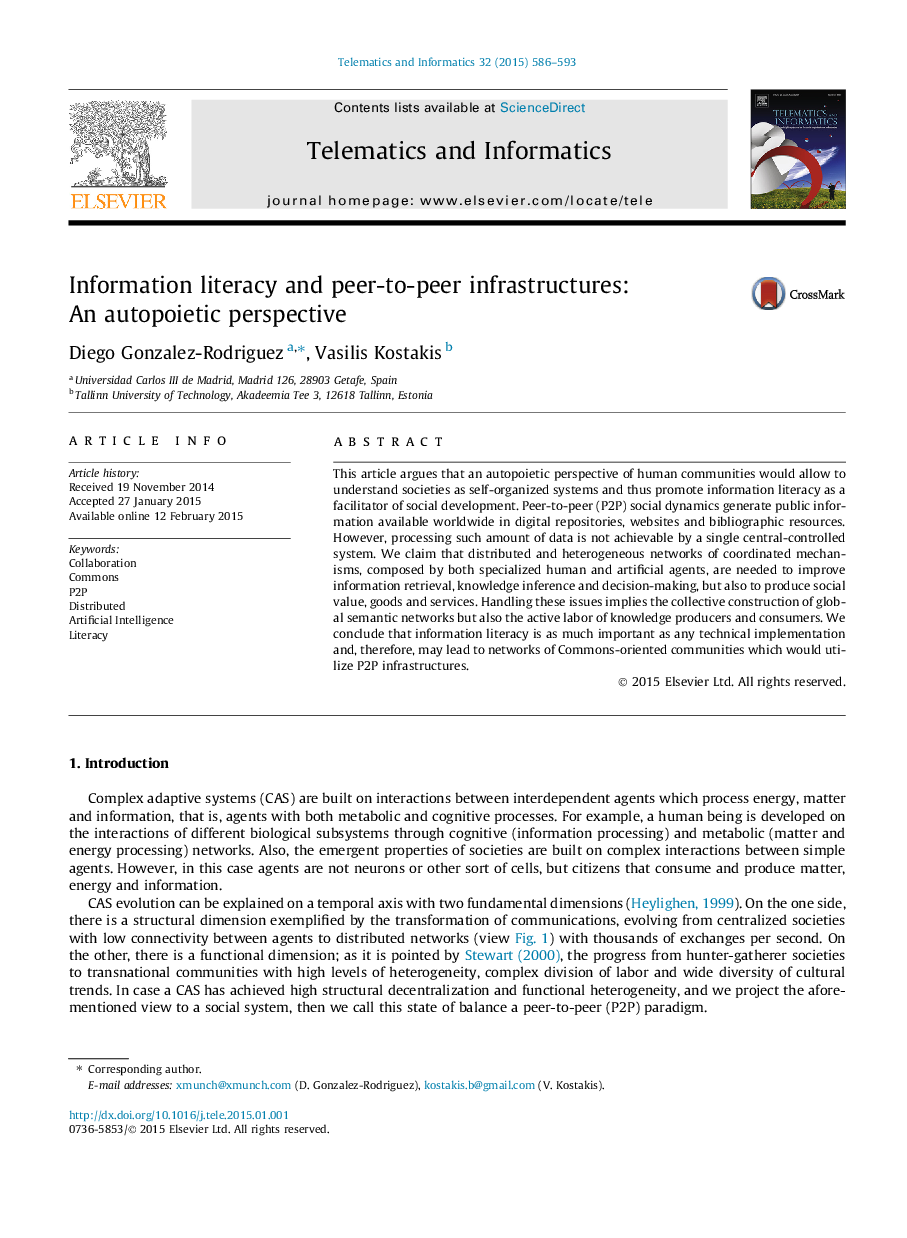| Article ID | Journal | Published Year | Pages | File Type |
|---|---|---|---|---|
| 466971 | Telematics and Informatics | 2015 | 8 Pages |
•We introduce the idea of a P2P paradigm within the complex adaptive systems.•We address issues such as information overload, data interoperability and knowledge inference.•We develop the idea of information literacy from an autopoietic perspective.•We describe Commons-based peer production.
This article argues that an autopoietic perspective of human communities would allow to understand societies as self-organized systems and thus promote information literacy as a facilitator of social development. Peer-to-peer (P2P) social dynamics generate public information available worldwide in digital repositories, websites and bibliographic resources. However, processing such amount of data is not achievable by a single central-controlled system. We claim that distributed and heterogeneous networks of coordinated mechanisms, composed by both specialized human and artificial agents, are needed to improve information retrieval, knowledge inference and decision-making, but also to produce social value, goods and services. Handling these issues implies the collective construction of global semantic networks but also the active labor of knowledge producers and consumers. We conclude that information literacy is as much important as any technical implementation and, therefore, may lead to networks of Commons-oriented communities which would utilize P2P infrastructures.
